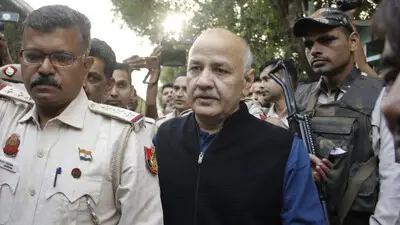Recommended Stories
"When Loss is Gain", the first work of fiction by Varma whose foray into the literary arena has been successful with over a dozen books in his kitty, is "inspired from each of our lives, incidents that unfold everyday in the life of any individual and is not some romantic story in an exotic locale," says Varma, Indian Ambassador to Bhutan, in an interaction with PTI.
As he speaks on the occasion of the launch of his fictional work here on Wednesday night, one can feel the gamut of emotions running through the soft-spoken diplomat when he talks about the existential dilemma that perturbs every individual and the paradoxes of life and death. "How we face death when it is handed out suddenly like a bolt from the blue and paradoxically about how you treat the gift of life...."
It is a powerful, fast paced story that deals with life and death, loss and gain, happiness and fulfilment, the physical and the spiritual, the rational and inexplicable and the perennial dialogue between "dukkha" or sorrow, the key word in Buddhism and "Ananda" or joy, which animates most of the Hindu philosophy.
The key protagonists, Anand and Tara, become the metaphors for Hindu philosophy and Buddhism and the story is set in contemporary India and the Himalayan Kingdom of Bhutan.
Anand, a budding Delhi lawyer, obsessed with his own ambition and politics of his workplace, thinks his life has hit rock bottom when he is diagnosed with pancreatic cancer. Then another misfortune strikes: his wife Tanu leaves him for his best friend Adi, the owner of a law firm for which he works.
As Anand surveys the wreckage of everything that has mattered to him and realises how misplaced his priorities have been, he is unexpectedly granted a reprieve when his doctor tells him that the initial diagnosis was wrong and that he is cancer-free.
He then deliberately loses himself in the simple joys of life for which he never had the time. But when old concerns and habits begin to creep back, he decides on a whim, to undertake a journey to the remote Bhutanese retreat of Wangsisina to ruminate about his future in solitude.
Should he renounce the temptations of city forever? Should he abjure romantic love? Should he spend the rest of his days as a recluse or start taking the first tentative step back to a fuller life which Chimi, his Bhutanese friend encourages him to do, are some of the questions that confront him.
As he wrestles with these questions in the panoramic backdrop of cliffs and snow-clad mountains of Bhutan, he meets enigmatic Tara, a woman fleeing from her own tragic past to become a Buddhist nun, with whom he falls in love and his life looks set to take yet another unexpected turn...
Fast paced yet contemplative, Varma`s first novel is a powerful story of love and loss, despair and hope, chance and destiny, and the true meaning of joy and sorrow in every human life.
"Joy and sorrow are both sides of the same coin. While Tara who symbolises sorrow is seeking to renounce life after going through its travails, Anand being gifted with life again cannot imagine anyone not embracing life. I would consider my work a success if people pause to think what its message was, which is essentially about about how we treat life," says Varma.
Varma, a writer of depth and insight who has translated into English the poetry of Gulzar, quoting the eminent lyricist, says "after reading the book, you keep thinking of the story again and again". It is this process of revisiting the book which is as important as reading it in one go, says Varma.
Choosing his words like an artist choosing the colours with which he is going to paint, Varma describes his maiden fiction as a "reappraisal of one`s life, how much was before you and how much you really enjoyed burdened by the tyranny of milieu.
You never stopped to look at the beautiful dawn or the sunset as you were preoccupied with the trivia of life". To a query as to why he wrote fiction, Varma says, "I had a powerful story in my head which I had to put on paper. Once I started it just flowed. It took two years to complete".
On fiction writing in English, the versatile author whose non-fiction works range from `Krishna: The Playful Divine` to `Kama Sutra: The Art of Making Love to a Woman`, translated into French and German, says "for every good book, there is a great deal of mediocrity. The writing must be authentically based in your cultural roots".
A lot of writing in other languages is languishing. More translations are needed, Varma says. "There is a disproportionate space occupied by writers who only write in English", he says.
Varma says he is "committed to writing a major non-fiction book on contemporary India, which will be out by end of next year". His other books include an autobiography of renowned Urdu poet Mirza Ghalib, `Being Indian: The Truth About Why the 21st Century Will be India`s`, and translation of poetry of the likes of Kaifi Azmi and former Prime Minister Atal Bihari Vajpayee.












